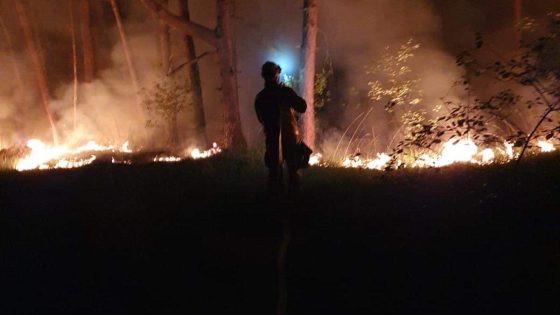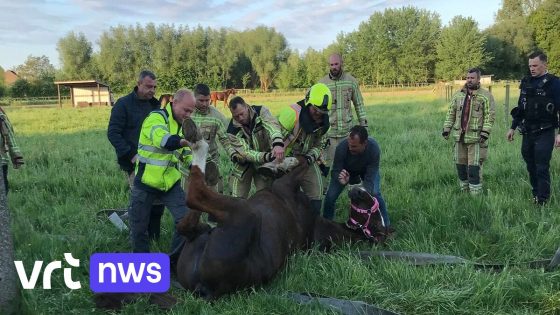A significant forest fire broke out early Tuesday morning near Leopoldsburg, highlighting the ongoing risk of wildfires in Belgium. The rapid response by local fire brigades helped contain the blaze, which started around 1 a.m. on 2025-05-20 10:40:00, preventing what could have been a major disaster.
- Fire started Tuesday around 1 AM
- Military quickly detected and reported fire
- Firefighters escalated response to two-meter flames
- 20,000 square meters of forest burned
- Firefighters continue extinguishing and monitoring smoke
- Authorities advise closing windows, stopping ventilation
- Dry conditions accelerated fire spread rapidly
- Proximity to ammunition depot posed major risk
Firefighters from the Noord-Limburg and Zuid-West Limburg zones faced flames reaching two meters high. Despite the challenging conditions, they managed to bring the fire under control quickly. However, the fire still consumed approximately 20,000 square meters of forest and heathland.
With smoke drifting towards nearby towns like Beringen and Tessenderlo-Ham, authorities advise residents to keep windows and doors closed and turn off ventilation systems. What caused the fire, and could it have been avoided? The following fast answer sheds light on the situation.
How did the fire escalate so quickly, and what lessons can be drawn? The dry conditions played a crucial role in the rapid spread, but fortunately, the calm weather at night prevented a worse outcome. Key points include:
- Quick detection by military personnel enabled prompt fire brigade response.
- Collaboration between Noord-Limburg and Zuid-West Limburg fire services was essential.
- Proximity to a munitions depot raised the stakes significantly.
- Preventative measures like closing windows can reduce smoke nuisance in affected towns.
As Belgium faces increasingly dry conditions, will our fire prevention and response strategies keep pace? Authorities encourage vigilance and preparedness, reminding residents to report any signs of fire immediately to help avoid future emergencies.

































